Email marketing is one of the most powerful and effective forms of digital marketing. It’s also incredibly easy to get started with, especially since most email marketing tools offer free plans that can be used to send emails to either your current customers or random people on your list (depending on the tool).
- Choose a tool that fits your business type and goals, like eCommerce, creators, or small businesses.
- Look for strong automation and segmentation to send relevant, behavior-triggered campaigns.
- Prioritize analytics and A/B testing to measure performance and optimize email results.
- Consider pricing, free plan limits, and integrations with your platforms before committing.
The problem with email marketing is that there are so many options out there that it can feel overwhelming trying to decide which one is best for you. Below I’ll go over 15 different email marketing tools—from big names like Klaviyo and MailChimp down to lesser-known gems like SendinBlue and Drip—and explain what makes each one special so you can find the right fit for your business!
Powerful Email Marketing Tools
1. Klaviyo
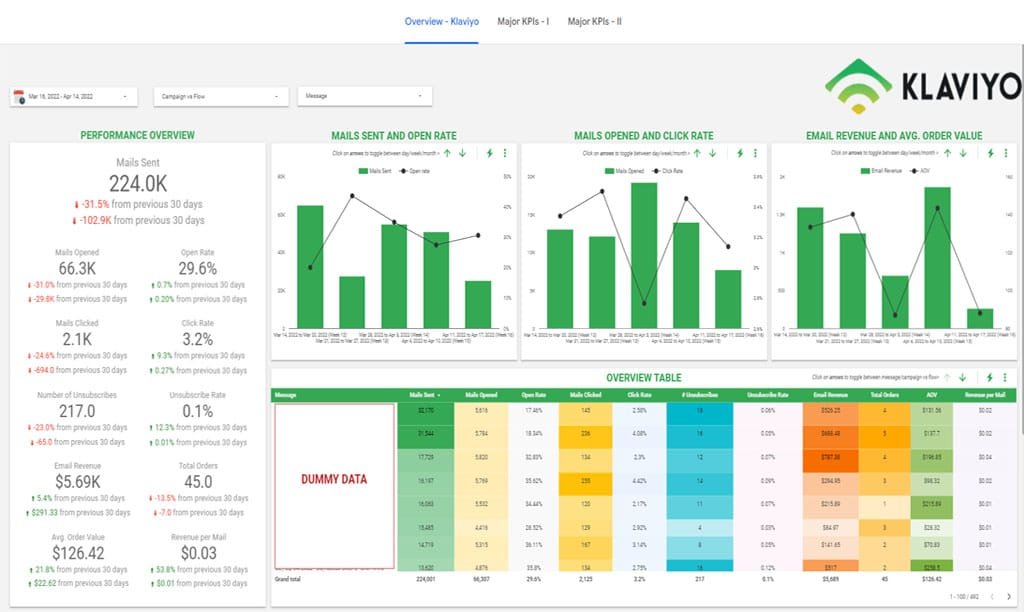
Klaviyo is a email marketing tool that helps you send targeted emails to your customers. It has a built-in CRM and shopping cart, so you can easily keep track of customers who have bought from you in the past (and are likely to buy again).
Klaviyo also offers an analytics dashboard where you can monitor which emails are performing well and which ones aren’t performing as well as they should be.
Klaviyo is perfect for Small businesses who want to send targeted email campaigns but don’t have the time or expertise to do it themselves.
Key Features:
- Built-in CRM and eCommerce integrations.
- Advanced segmentation based on shopping behavior and customer data.
- Analytics dashboard for performance tracking.
- Pre-built automation templates for abandoned carts, post-purchase follow-ups, etc.
Pros:
- Perfect for eCommerce businesses.
- Deep integration with platforms like Shopify and WooCommerce.
- Powerful analytics and A/B testing tools.
Cons:
- Expensive for smaller businesses.
- Limited free plan functionality.
Pricing:
- Free plan for up to 250 contacts and 500 email sends/month.
- Paid plans start at $20/month based on the number of contacts.
2. MailChimp
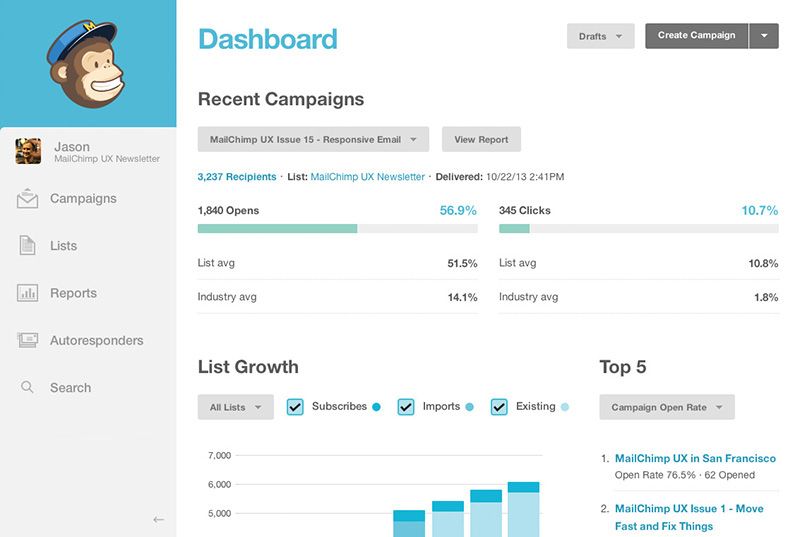
MailChimp is a popular amongst the email marketing tools that’s free for up to 500 subscribers. It’s easy to use and has a lot of great features. Once you’ve connected your email account, MailChimp will create a list of all your contacts from that account, giving you the option to segment them into groups based on how often they open their emails or other metrics (you can also do this manually).
An example of how easy it is to create an automated campaign: Once someone signs up for my newsletter using MailChimp’s integration with Stripe (which makes it dead-simple), they’ll automatically receive an email welcoming them to the list and asking if they’d like more information about me or my company.
If they respond affirmatively, then I’ll follow up with another email offering additional resources on our website in order get their contact info again but only after ensuring that they’re still interested by sending an opt-in confirmation message first!
Key Features:
- Drag-and-drop email builder.
- Audience segmentation and behavioral targeting.
- Email automation and A/B testing.
- Integrations with over 250 apps, including WordPress and Shopify.
Pros:
- Free plan for small businesses (up to 500 subscribers).
- User-friendly and suitable for beginners.
- Excellent templates and design tools.
Cons:
- Limited automation features in the free plan.
- Pricing escalates quickly as your list grows.
Pricing:
- Free plan for up to 500 subscribers.
- Paid plans start at $13/month for Essentials.
3. Sendinblue

SendinBlue is a French email marketing company that launched in 2013. They offer both free and paid plans, with their free plan offering up to 1,000 subscribers and 300 emails per month. (prices vary depending on your volume).
SendinBlue has an extensive range of features including transactional email services (e.g., order confirmation), newsletter services (e.g., daily deals), marketing automation services (e.g., automated campaigns that are triggered by user behavior or other events).
even a mobile app for those who want to track campaign performance from their smartphone or tablet which is pretty handy if you’re sending out messages during off-hours when you may not be able to get online as easily as during typical business hours!
Key Features:
- Unlimited contact storage, even on the free plan.
- Marketing automation with triggers and workflows.
- SMS marketing integration.
Pros:
- Competitive pricing for higher email volumes.
- User-friendly interface with robust automation tools.
Cons:
- Limited design templates.
- Free plan branding on emails.
Pricing:
- Free plan: Up to 300 emails/day.
- Paid plans start at $25/month for up to 20,000 emails.
4. Drip

Drip is one of the powerful email marketing tools that has a strong focus on automation. It allows you to create personalized emails and follow-up sequences that can be sent automatically, based on actions taken by your subscribers—such as clicks or opens.
If you want to test out Drip’s capabilities before committing yourself, there are two options: free trials and free plans. A free trial lasts for one month, while the free plan has no limit on the number of contacts you can send messages to each month but comes with advertising at the bottom of your emails (the same thing happens with paid plans).
Key Features:
- Advanced email automation and workflows.
- Dynamic segmentation and customer journey tracking.
- Pre-built email templates for eCommerce.
- Revenue attribution tracking for campaigns.
Pros:
- Highly customizable automation sequences.
- Ideal for eCommerce businesses.
- Detailed analytics and reporting tools.
Cons:
- Steep learning curve for beginners.
- Pricier than other tools for smaller businesses.
Pricing:
- Free trial for 14 days.
- Paid plans start at $39/month for up to 2,500 contacts.
5. Constant Contact
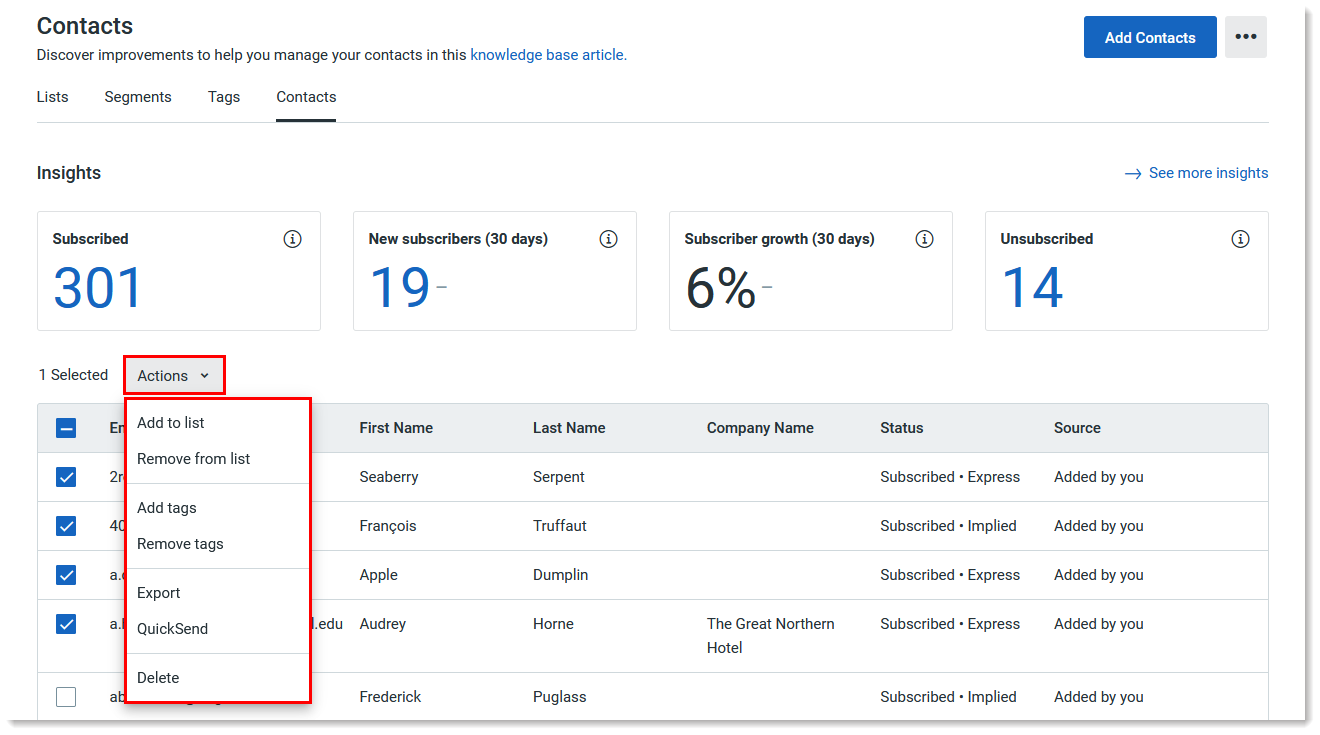
Constant Contact is a well-established name in the email marketing tools industry and has over 10 million users. They offer a free plan to try out their features, but you’ll have to pay for it if you want to continue using the service.
Their mobile app allows you to send emails on the go and track your results right away so that you can adjust your strategy as needed. Additionally, they offer an affiliate program as well as an email builder, newsletter editor, and support team.
Key Features:
- Easy-to-use drag-and-drop editor.
- Event marketing tools (RSVPs, invitations, etc.).
- Real-time tracking and analytics.
- Social media ad integration.
Pros:
- Great customer support and resources for beginners.
- Offers unique features like event management.
- Reliable deliverability rates.
Cons:
- Fewer automation features compared to competitors.
- Limited customization in templates.
Pricing:
- Free trial for 60 days.
- Paid plans start at $12/month for up to 500 contacts.
6. ConvertKit

ConvertKit is a great email marketing tool for bloggers. It’s simple and easy to use, which makes it perfect for beginners looking to improve their marketing efforts. It’s also super affordable, with plans starting at just $15/month.
ConvertKit is an all-in-one email marketing platform for bloggers, podcasters, and other online businesses. They offer several features that make it easy to create high-quality newsletters while also attracting new subscribers on autopilot!
Key Features:
- Tag-based subscriber management.
- Automation for funnels and sequences.
- Landing page and form builder.
- Integration with platforms like Patreon and Teachable.
Pros:
- Simple and intuitive for creators like bloggers and YouTubers.
- Focused on growing email lists with easy opt-in forms.
- Transparent pricing with no hidden fees.
Cons:
- Limited templates and design options.
- Not ideal for eCommerce businesses.
Pricing:
- Free plan for up to 1,000 subscribers.
- Paid plans start at $15/month.
7. AWeber
AWeber is a great email marketing tool for businesses of all sizes. It’s easy to use and has a great user interface, making it a breeze for you or your team members to create campaigns and send emails. You can also access AWeber’s drag-and-drop editor from your computer or mobile device, so you can design on the go!
AWeber also has excellent customer service—you can contact them via phone or email 24/7 if you need help with anything. And their mobile app makes it even easier to manage your lists and send out campaigns (plus it looks really cool).
In addition to being easy to use, AWeber offers tons of templates so that you can easily create beautiful emails without any design experience whatsoever!
Key Features:
- Drag-and-drop email editor.
- Pre-designed email templates and stock image gallery.
- Robust autoresponder and email tracking.
- Integration with platforms like WordPress and Shopify.
Pros:
- Affordable for small businesses.
- Includes split testing features for campaigns.
Cons:
- Limited advanced automation.
- Templates can feel outdated.
Pricing:
- Free plan for up to 500 subscribers.
- Paid plans start at $19.99/month.
8. Campaign Monitor
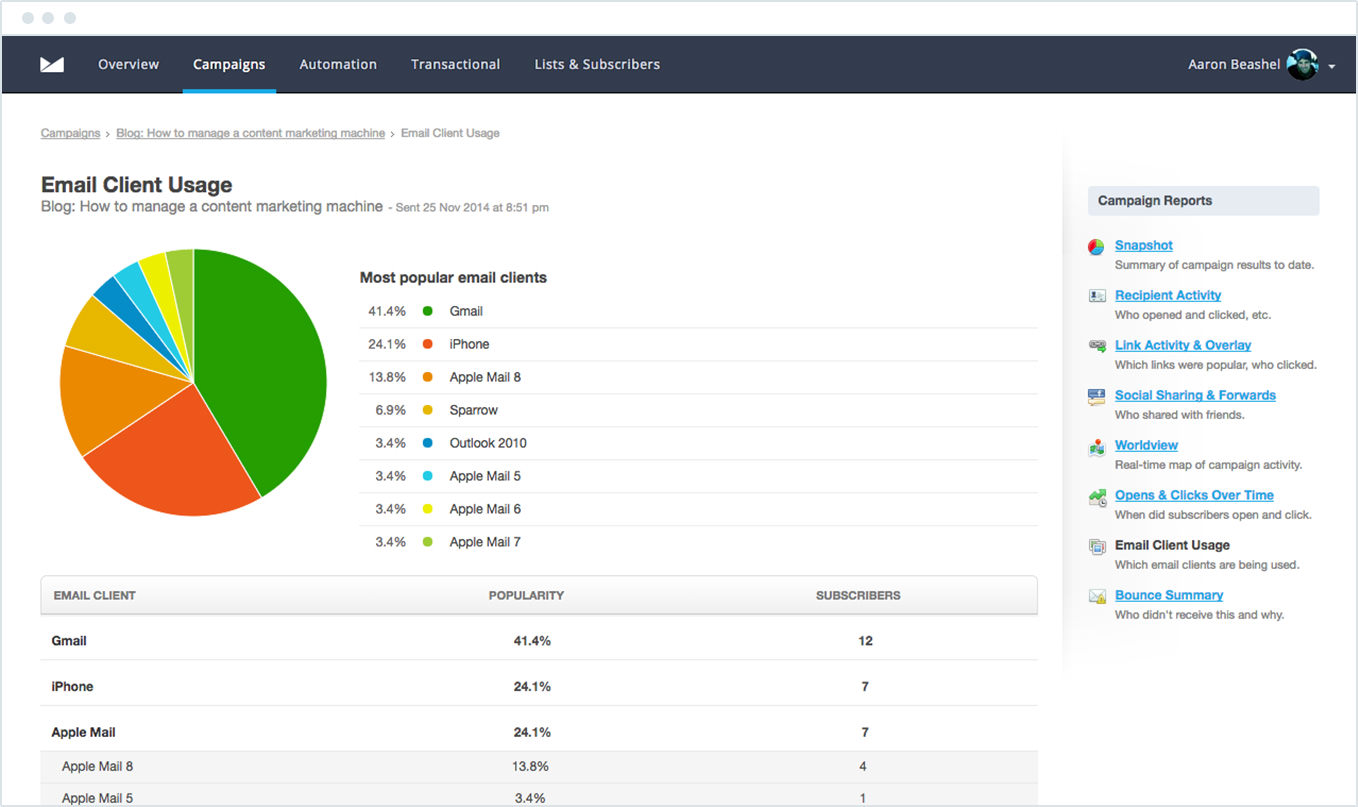
Campaign Monitor is the email marketing tools and service provider that allows you to send email newsletters and manage subscriber lists. It’s easy to use, and it also comes with a number of advanced features that allow you to create beautiful emails and manage your campaigns from one dashboard—a great choice for beginners or small businesses.
Key Features:
- Personalized content with dynamic fields.
- Visual journey builder for automating campaigns.
- Pre-built templates optimized for mobile.
- Advanced reporting and analytics.
Pros:
- Beautiful and customizable email templates.
- Straightforward user interface.
- Suitable for small businesses and agencies.
Cons:
- Limited features in lower-priced plans.
- No free plan available.
Pricing:
- Paid plans start at $9/month for Basic.
9. GetResponse
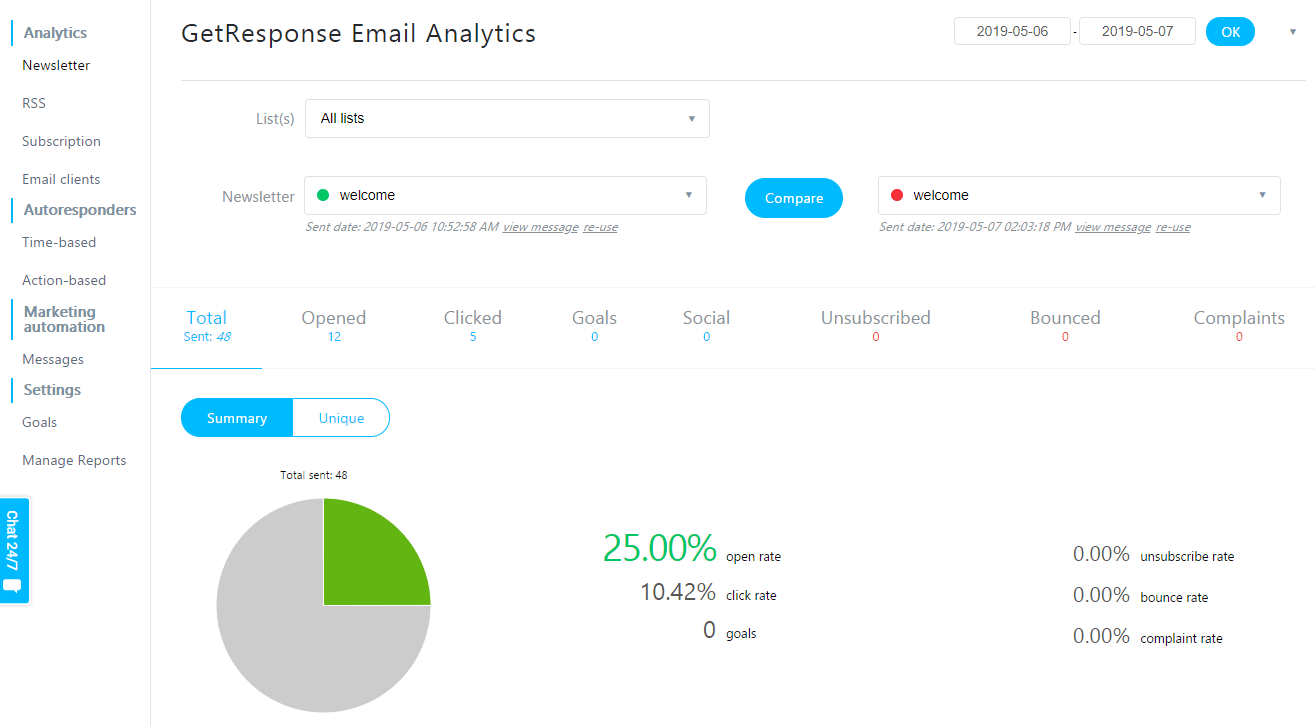
GetResponse is a great email tool for marketers and small business owners. It has a clean, user-friendly interface that allows you to create beautiful emails without much effort. The software is also affordable, which makes it easy to get started with email marketing if you don’t have much money to spend on tools.
GetResponse has excellent customer service, making it easy for you to get help when you need it. The company offers training sessions online for new users and has live chat support available by phone or email 24 hours a day.
Aspiring marketers will especially appreciate how easy GetResponse makes their job; the software comes packed with features like drag-and-drop builder templates and customizable autoresponder sequences (which are automated messages sent out when someone subscribes).
If this sounds like your kind of thing then head over here now!
Key Features:
- Powerful landing page builder.
- Webinars and sales funnel integration.
- Email autoresponders and segmentation.
- AI-powered recommendations for content optimization.
Pros:
- All-in-one platform with unique features like webinars.
- Affordable pricing for small businesses.
- Intuitive drag-and-drop editor.
Cons:
- Limited templates compared to competitors.
- Advanced features require higher-tier plans.
Pricing:
- Free plan for up to 500 contacts.
- Paid plans start at $15.58/month.
10. Benchmark Email
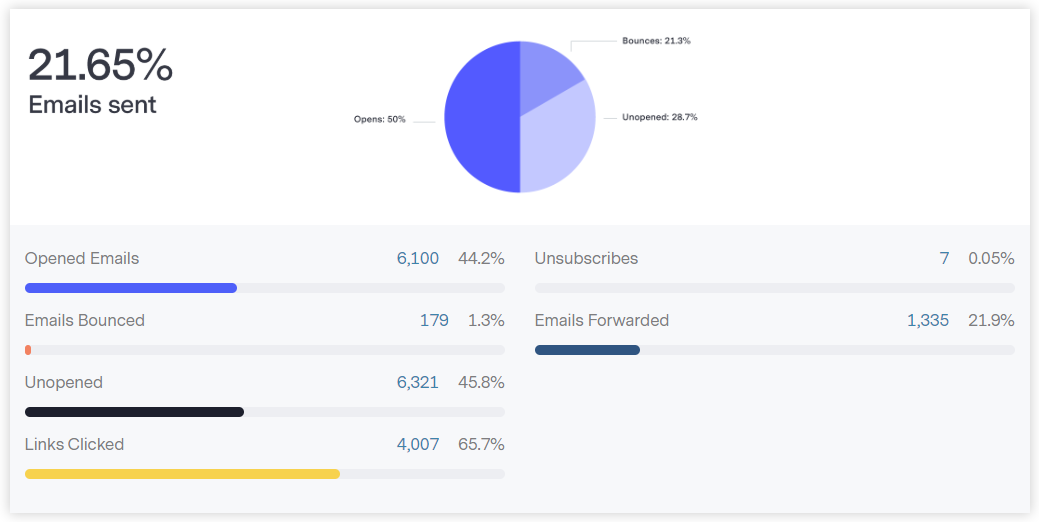
Benchmark Email is an email marketing tool, an email automation tool and a marketing automation platform.
In other words, Benchmark Email is a marketing automation suite that allows you to create automated campaigns and send them regularly to your audience. With Benchmark Email you can:
- Create personalized emails based on their behavior (or past behavior).
- Send these emails at the right time or day of week.
- A/B test your subject lines and content against each other so as to send better-performing emails in the future.
Pros:
- Great for small businesses and beginners.
- Offers multi-language support.
- Affordable pricing for advanced features.
Cons:
- Limited integrations.
- Fewer customization options for templates.
Pricing:
- Free plan for up to 3,500 emails/month.
- Paid plans start at $13/month.
11. Infusionsoft
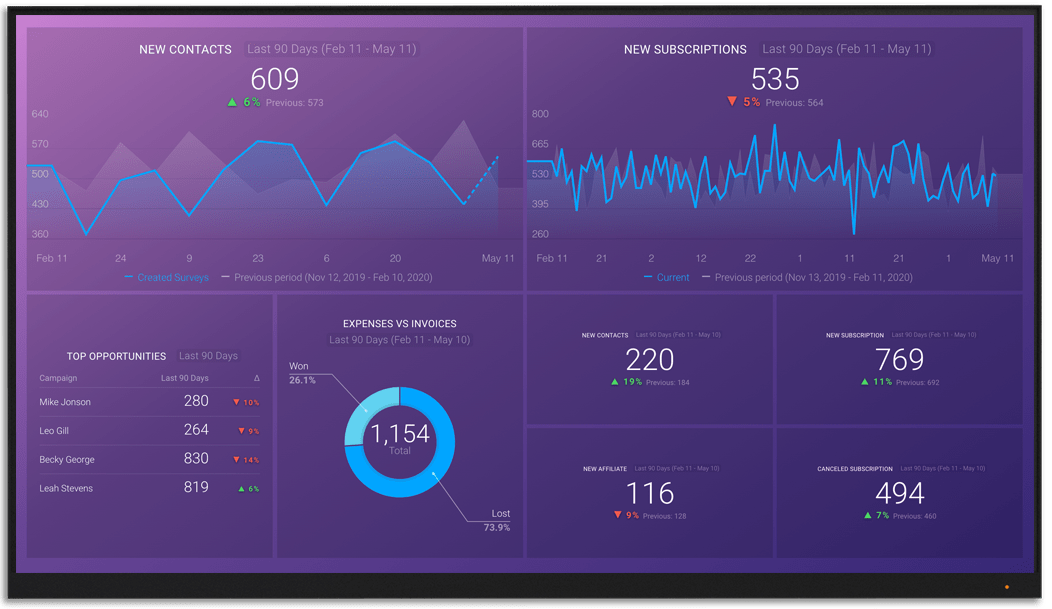
Infusionsoft is a marketing automation platform that helps you manage email, social media, and web marketing campaigns.
It’s great for managing email campaigns because it allows you to:
- Create drip campaigns. Drip campaigns are automated emails that send out based on predetermined triggers (e.g., when someone opens an email). You can build these out in advance or create them as needed so that they’re always relevant to your audience’s needs.
- Send personalized emails based on the recipient’s information and activity history on your website or other online properties. For example, if someone signs up for an e-book offer from your business’ website and then later returns to the site without signing up again, Infusionsoft will recognize this visitor and send them an email about another promotion related to their interests—without having to ask for any new information.
12. SendGrid

SendGrid is a cloud-based email delivery platform. It allows you to send, track and report on emails. SendGrid also provides user authentication, real time analytics, mobile push notifications and transactional SMS to help you personalize your campaigns across channels.
SendGrid works with a variety of applications including Shopify, Salesforce, Zendesk and others. You can integrate your shopping cart into the SendGrid application so that an order confirmation email will be sent automatically once an order has been placed on your site.
13. Omnisend
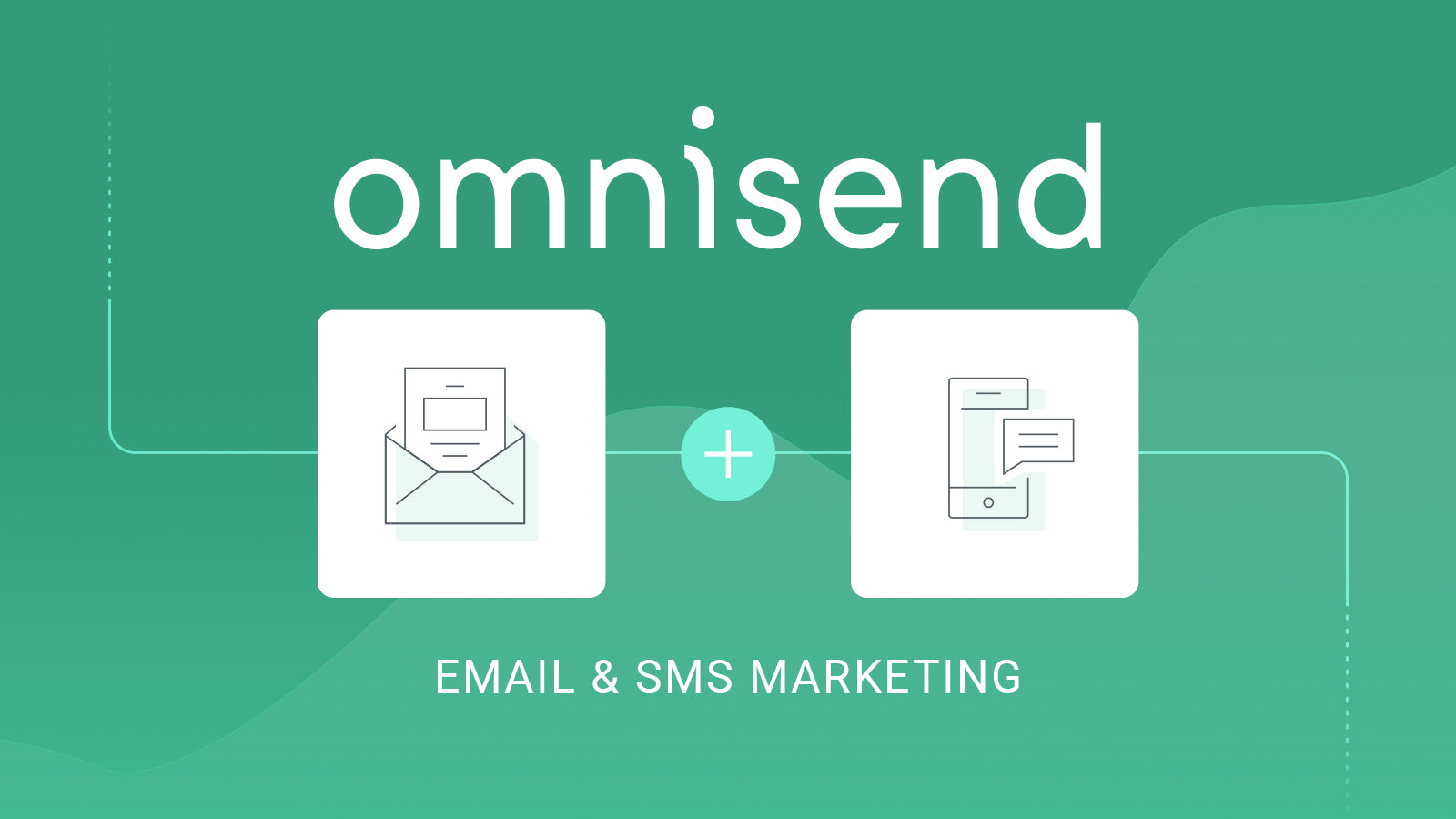
Omnisend is one of the best email marketing tools out there. It’s a good solution for growing your email list and keeping in touch with customers, and it can also help you send automated emails, personalized emails and more.
Omnisend is an all-in-one solution that makes it easy to build lists, manage subscribers and create successful campaigns. With Omnisend you can:
- Create targeted email marketing campaigns by combining different types of triggers (such as abandoned cart messages) with different types of content (like product recommendations or discount coupons).
- Design beautiful landing pages that will encourage people to sign up for your newsletters or other updates from your company.
14. ActiveCampaign
ActiveCampaign is a full-service email marketing platform that helps you deliver personalized, relevant emails to your customers. It’s best suited for companies with more than 1,000 subscribers and who want to automate their marketing. ActiveCampaign can help you track and analyze your campaigns so you can find out which ones are working best—and then optimize them to be even better!
15. HubSpot
HubSpot Marketing Hub is a good tool for managing and measuring email campaigns. It’s also a good tool for managing and measuring social media campaigns, as well as content marketing campaigns.
In addition to the email campaign management functions, you can use the platform to create automated workflows that will help you drive leads through the sales funnel. The platform supports keyword-based segmentation of your audience so that you can send targeted emails based on their interests (or lack thereof).
Conclusion
In the end, email marketing tools is all about finding what works for your audience and using it to your advantage. It’s not a one-size-fits-all solution, but it can be a great way to engage with customers and build relationships with them over time.
Take some time to consider which email marketing tool is best for you and how you can use it as part of an integrated marketing strategy that drives results. If you’re still not sure where to start, remember: there are plenty of free options out there!







